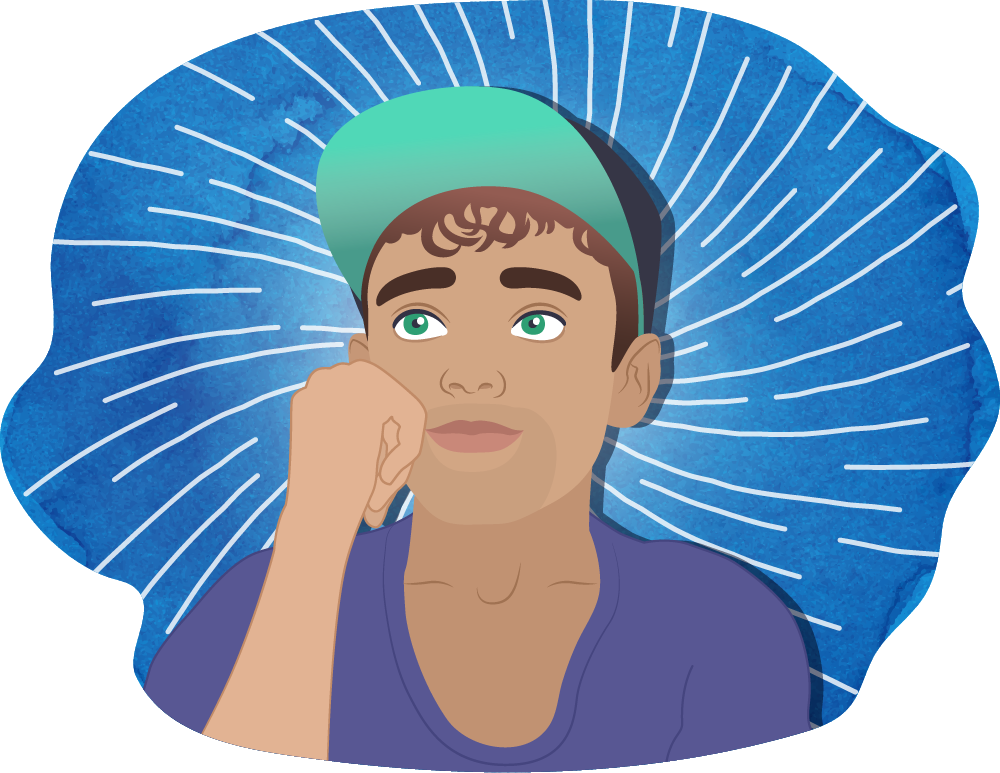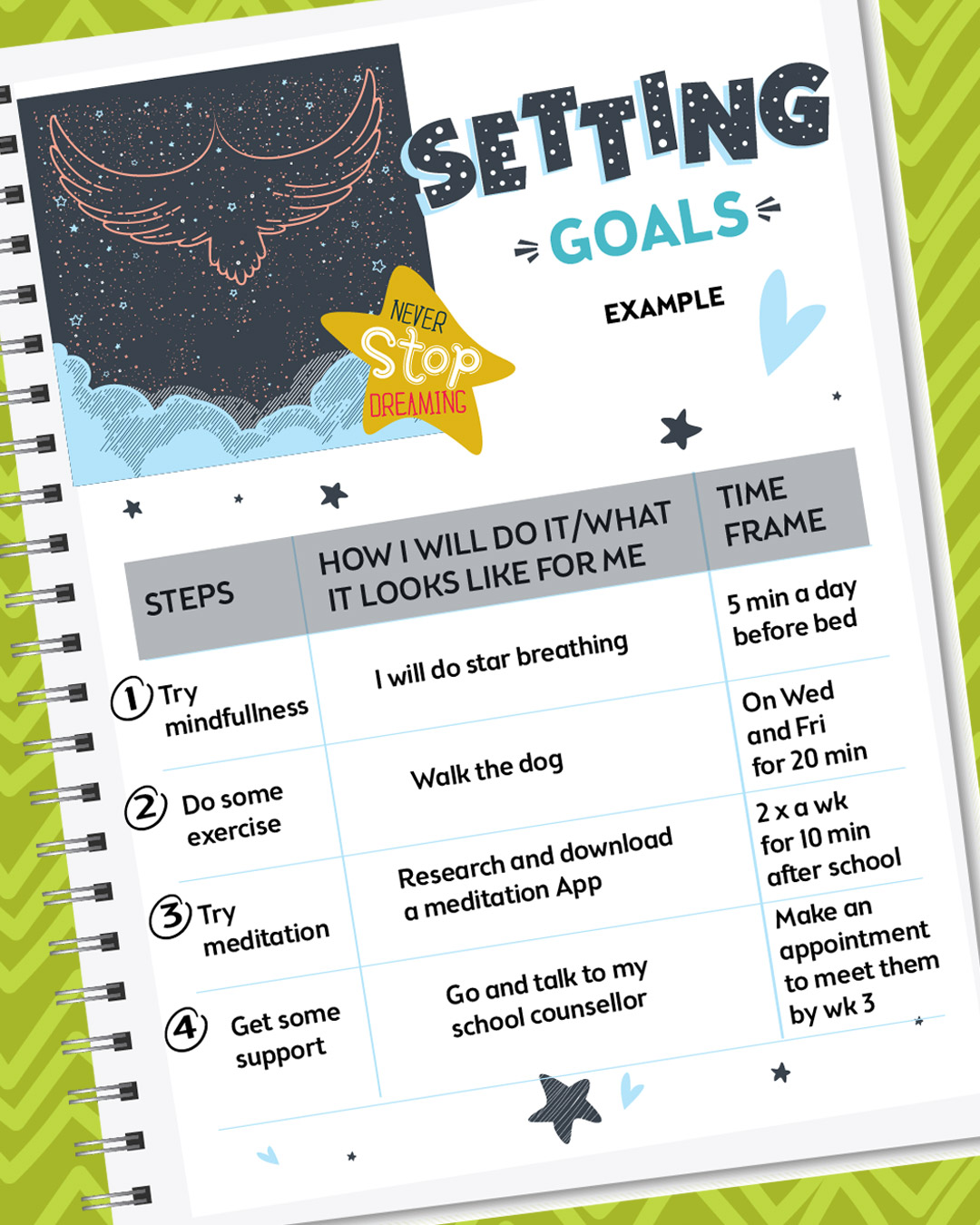How to ask for help
Sometimes we need help but we're not able to ask for it. ...
READ MEEverything you need to know about how self-help works and how to tell the good advice from the bad.

"Let's try some really far out there self-help strategies, that really challenged me but helped a lot!"
The effectiveness of self-help depends on lots of factors like the self-help resources you use, your knowledge, strengths and skills and any additional support or treatments you receive. The good news is that the right self-help resources can make a difference. Here’s how they help:
Learning new coping strategies and practising them
Being educated to make more informed decisions
Gaining new perspectives, i.e. seeing the same thing in different ways
Breaking harmful habits and replacing them with new, improved ones
Discovering you aren’t alone and connecting with those with similar experiences
Gaining new insights, e.g. having a realisation about a thinking pattern you were stuck in
Seek evidence for and against what is being said. It never hurts to have more than one source of information!
Check the evidence base of the info. The best sources provide their references and use reputable sources or peer-reviewed journal articles.
Check the expertise of the person providing the info. Qualifications and experience need to be relevant to the information they are providing. Other reputable sources of information might include government or international bodies with good reputations, such as the World Health Organisation.
Check if there are any ‘conflicts of interest’ for the person providing the info. A ‘conflict of interest’ happens when someone has an agenda that benefits them. For instance, an influencer being paid to promote something as opposed to providing a genuine review.
“Self-help shouldn’t replace professional health and mental health support, or medical treatments. Self-help works best when it compliments other professional treatments and supports.”
– Amanda, Kids Helpline Counsellor
Self-help is all about positive change. Our brain has ‘established neural pathways’ (emotions, thoughts and behaviours we use all the time). These are mostly automatic and are our ‘default’ setting.
We have to unlearn these things by no longer using them or replacing them!
When we learn something new, we have to grow the brain cells and then get them to form new ‘neural pathways’. Imagine these neural pathways as being like a road.
Every time you practice a new skill, thought or behaviour, your brain follows the new neural pathway (like driving down that road).
With enough practice, that neural pathway becomes your ‘default’ which means it’s automatic.
When things are automatic they take less effort and energy. Like brushing your teeth every day – it becomes so automatic you can even check social media while doing it!
When it comes to your brain, if you ‘don’t use it, you lose it’. This is why practice is so important!
“Any change or personal growth journey will include setbacks. It’s not a question of ‘if’ but ‘when’.
Be prepared to make mistakes or return to your old bad habits.
When it happens, be kind to yourself and then get back on track. The difference between success and failure is turning a setback into a comeback.”
– Amanda, Kids Helpline Counsellor
You can self-help in lots of different ways. Reading a book, watching a ‘how-to’ video on YouTube, and even reading Kids Helpline website articles is a form of self-help!
Remember that self-help is about building on your own strengths, interests and skills and should make you feel empowered. Empowerment isn’t just a feeling. It’s about applying practical strategies to your life.
A great way to do this is through setting S.M.A.R.T goals.
Self-help is a process. It takes time and repetition (lots and lots of it) to make positive changes. The best way to make a permanent change is to set realistic goals. Realistic goals are:

"I realised I had to analyse the problem without my emotions getting in the way. I wrote in a journal whenever I felt a rush of emotions, to put my thoughts into context."
“Setbacks and mistakes are a normal, healthy part of change. When they happen, be kind to yourself, then refocus on your goal and keep trying. Don’t forget that practice makes progress.”
– Amanda, Kids Helpline Counsellor
How to ask for help
Sometimes we need help but we're not able to ask for it. ...
READ MESelf-care
Looking after yourself is an important coping strategy. Let’s look at ...
READ MEHow to manage anxiety
Anxiety can feel overwhelming, but there are some simple steps you can ...
READ MELooking after yourself
If you’re juggling lots of things like school, chores, sports and ...
READ METalking helps! We’re here for you.
No problem is too big or too small.
We're here 24 hours a day, 7 days a week